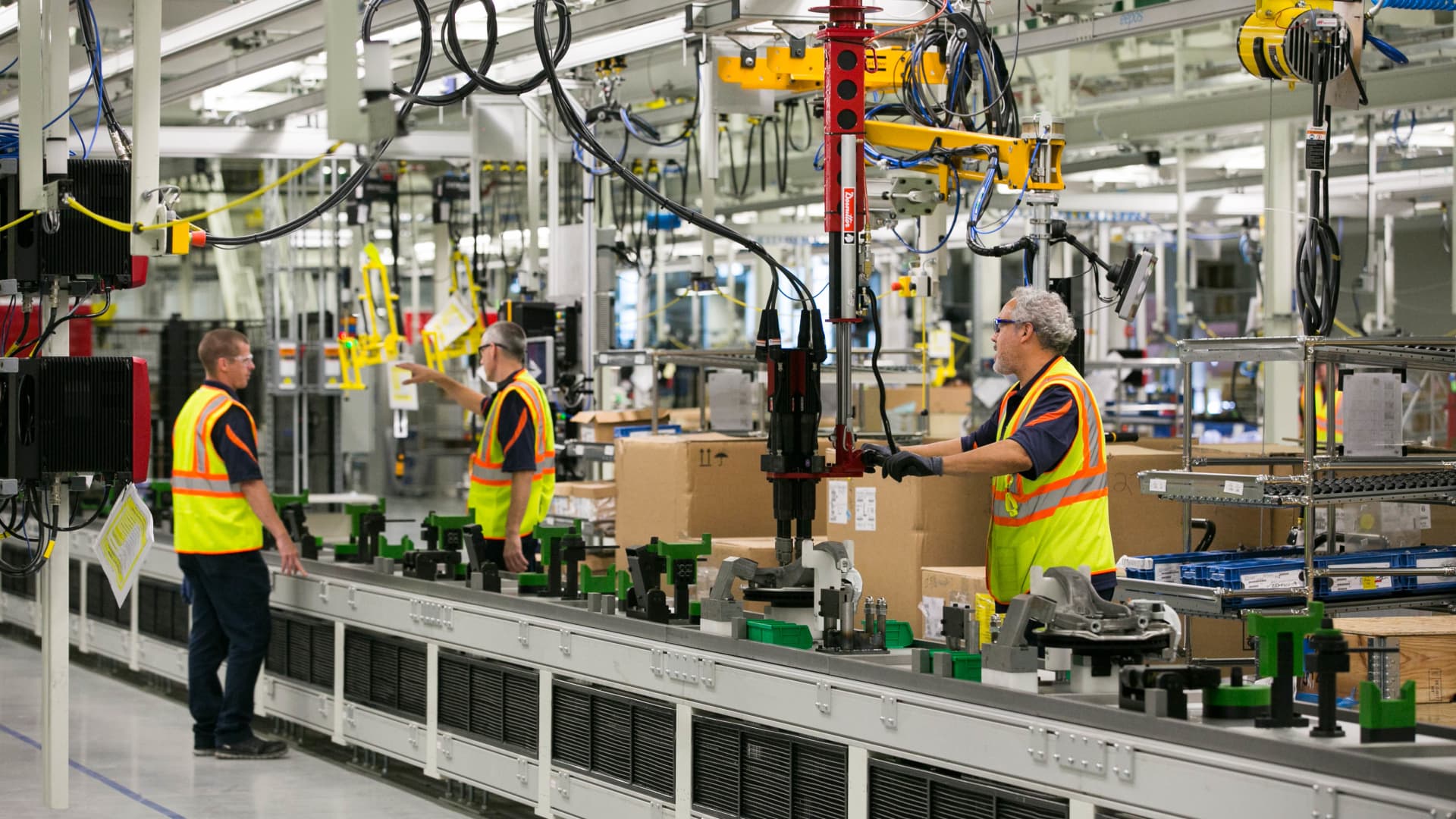
The race to build electric vehicles in the U.S. is heating up as fresh rounds of investment come out of Washington. Workers at the former heart of the auto industry fear being left behind.
“When we look carefully at what goes on on the factory floor, it won’t be less workers,” Keith Cooley, former head of Michigan’s Labor Department, told CNBC. “There will be different people building the cars.”
Researchers believe modern factory jobs will require more education and could be less available than they were in the past. They estimate that electric vehicles could require 30% less manufacturing labor when compared with conventional cars. “The lines that run to drive oil or gas around an internal combustion engine aren’t going to be there,” said Cooley.
This change could hit the parts suppliers in the auto industry, many of whom are concentrated near Midwestern cities such as Kokomo, Indiana; Lima, Ohio; and Detroit, Michigan.
“Car companies in some of these places actually make up a decent proportion of the tax revenue, and they employ many people within the surrounding community,” Sanya Carley, an Indiana University professor and contributor to the Industrial Heartland study, told CNBC. “So the fate of these companies is very intimately tied to the fate of the communities.”
Leaders in Washington hope two key pieces of legislation, the Inflation Reduction Act and the CHIPS Act, which were signed into law by President Joe Biden in August, will provide a bridge to that future. These laws authorize billions in incentives for businesses that pursue clean energy manufacturing.
With funding in the pipeline, automakers are now wondering how quickly demand for electric vehicles will materialize. In 2021, 9% of global auto sales were of electric vehicles, according to the International Energy Agency.
Watch the video to learn more about how the electric vehicle revolution will impact the economies of states across the U.S. Midwest.







